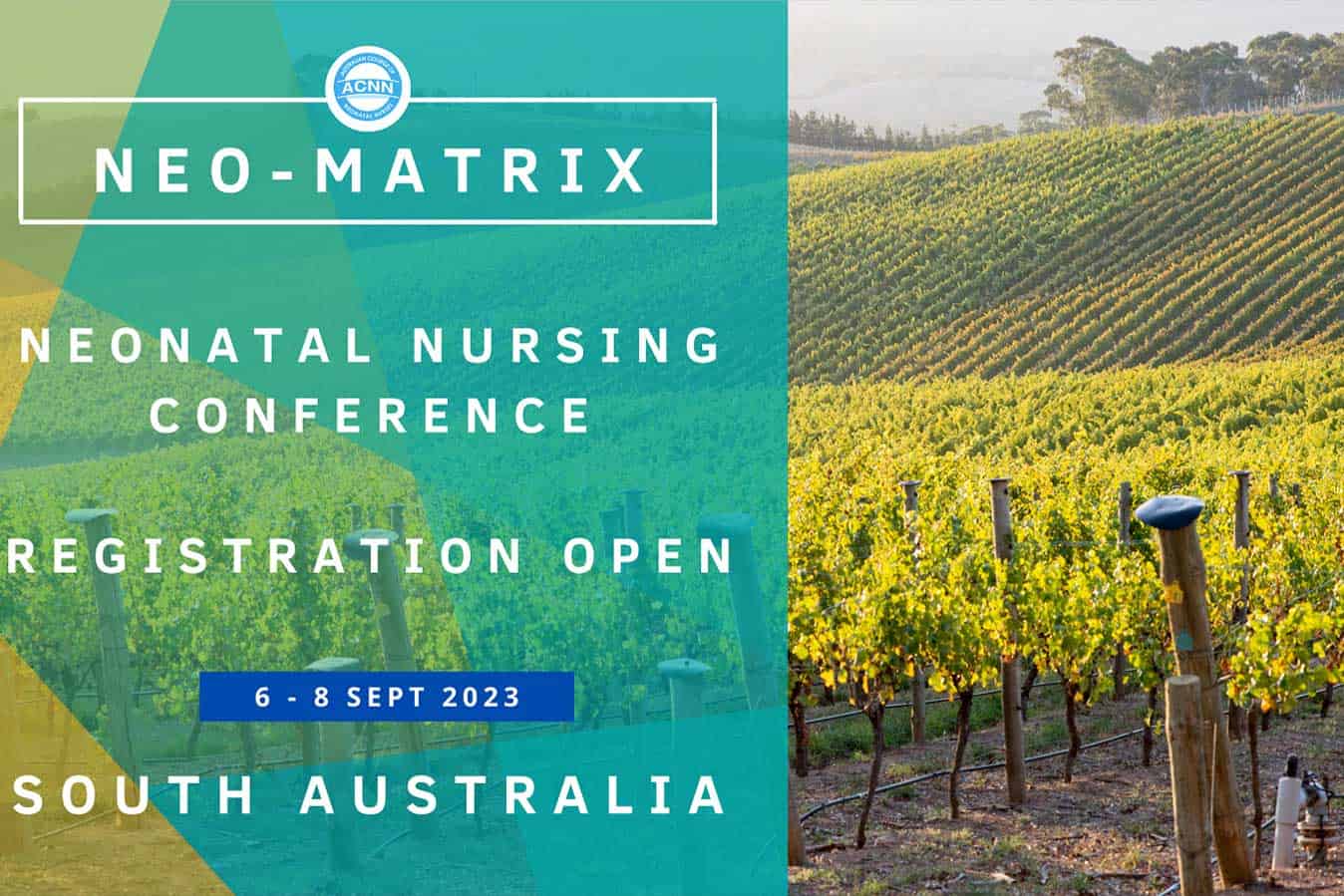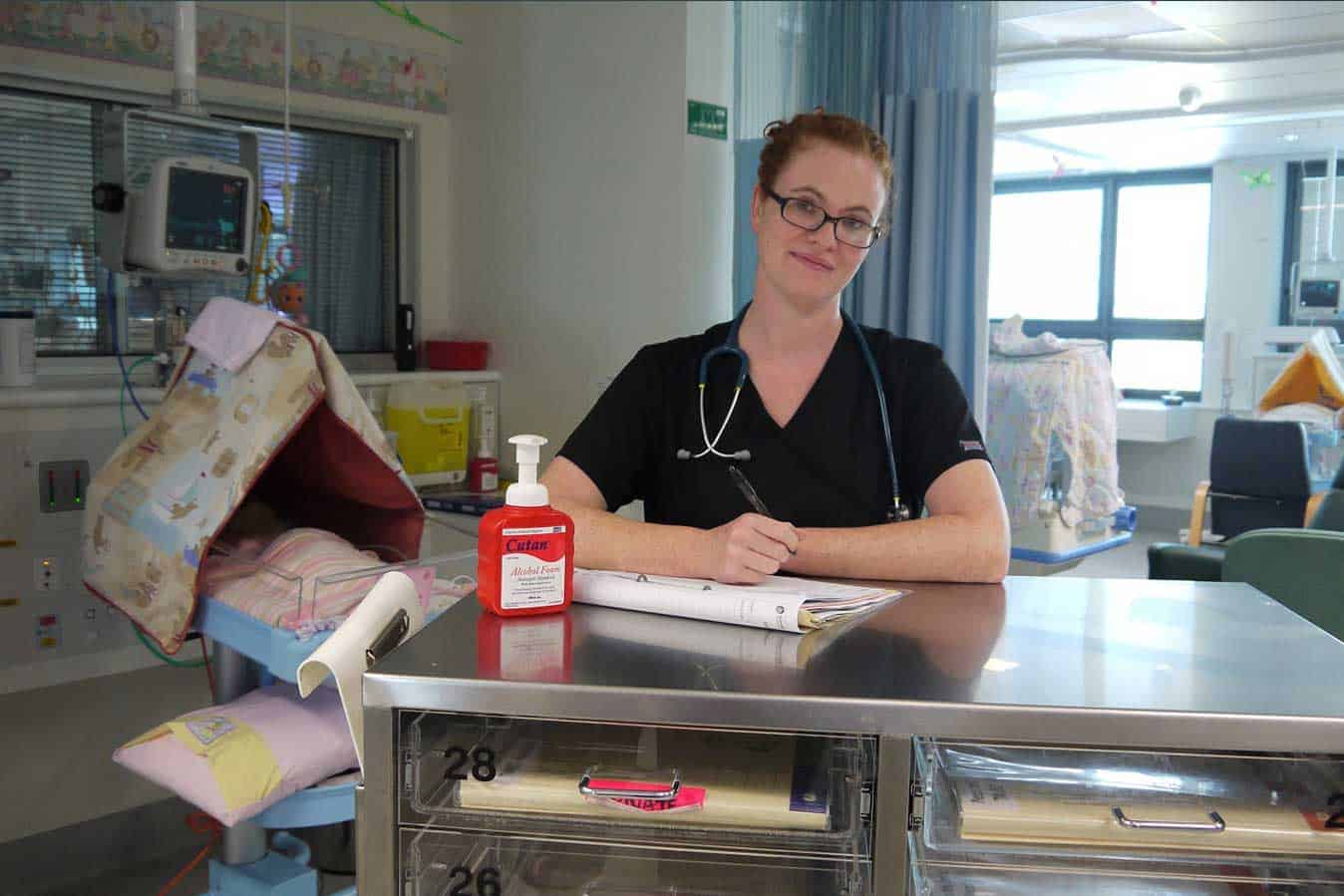August 15th is International Neonatal Nurses Day, recognised by the Council of International Neonatal Nurses, which was officially incorporated in 2005 to represent international neonatal nursing and care.
A neonatal nurse delivers care to sick or preterm newborn infants and their families during the first 28 days of life and sometimes beyond the first month of life if needed.
Neonatal Nurse Practitioner Amy Curran, President of the Australian College of Neonatal Nurses (ACNN) says the specialty can be a challenging but is immensely rewarding and exciting.
“We provide support for parents to get to know their baby and adapt to their new lifestyle. It’s such a rollercoaster ride for families – there are ups and downs with unexpected twists and turns.”
Amy works at Townsville University Hospital, which is the only level six tertiary-referral centre for newborns outside of Southeast Queensland, which provides neonatal surgery and undertakes the retrieval of sick neonates from across North Queensland.
Amy has vast experience in neonatal nursing, including having worked at the HDU/NICU at Leicester Royal Infirmary. She also worked at Great Ormond Street Hospital for Children in London where she was part of the team that cared for conjoined twins in the early 2000s, learnt about extracorporeal membrane oxygenation (ECMO) and developed a passion for retrievals by working for the Children’s Acute Transport Service (CATS).
Having migrated from the United Kingdom in 2004, Amy worked for three years with the Victorian Neonatal Emergency Transport Service (NETS), before moving to Townsville in 2007 which had one endorsed NP and two candidates at that time. Amy did her Masters of Nursing – Nurse Practitioner at Queensland University of Technology and became endorsed in 2010.
Each year Townsville University Hospital cares for more than 800 pre-term and unwell babies from North Queensland. The 14-bed NICU and 25-bed special care the neonatal unit currently has eight NPs who practice to an advanced scope of nursing including neonatal resuscitation, central line insertion, and ordering diagnostics such as x-ray and prescribing.
The number of neonatal NPs in Australia has grown – from about 40, three years to an estimated 60-70 today. The role is vast and diverse and largely involves advocating for babies and families, says Amy.
“There are so many areas of research being undertaken trying to work out best practice for our little baby’s survival and to support families. It is a difficult area of nursing – there are hard days. You never forget those days but aim to make that difficult time as best as it can be.”
A member of the ACNN since 2005, Amy was Vice-President for three years and has been President since September 2022. The ACNN provides direction and leadership for neonatal nurses enhancing their professional development within the speciality. It has four branches (ACT, NSW, SA, & QLD) and eight special interest groups.
“The College is committed to maintaining the highest international standards in clinical practice, teaching and research,” says Amy.
This year’s ACNN ‘Neo-matrix National Neonatal Nursing Conference’ is being held 6-8 September in South Australia. All neonatal nurses are invited to attend. The diverse program focusing on a set of related things that affect the way something develops or changes; Neonatal Opioid Withdrawal Syndrome (NOWS), Neonatal Abstinence Syndrome (NAS), endocrine, metabolic, or genetic conditions covering many aspects for neonatal nurses.
Benefits of joining the ACNN include low-cost membership, virtual presentations, rural and remote workshops, scholarships, and awards that recognise the work and achievements of neonatal nurses.
Networking, mentorship and sharing the passion amongst like-minded peers is a huge benefit to joining the ACNN, says Amy, particularly for new neonatal nurses.
Annual membership to the ACNN is $99 ($80 to renew). For more information, visit the ACNN.
Facebook: Australian College of Neonatal Nurses
Instagram: acnn.org.au









